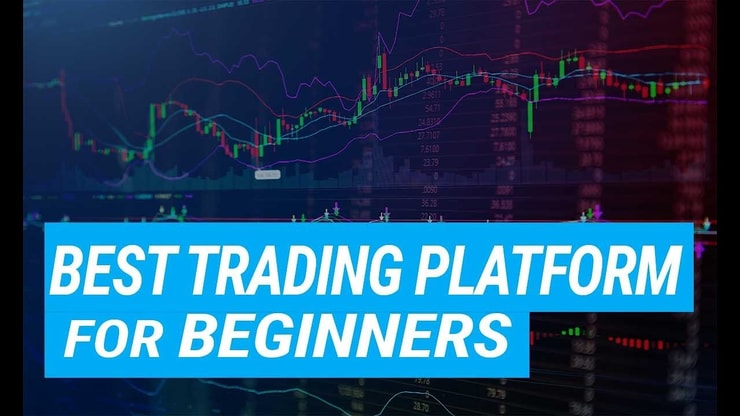Cheap stocks to buy now in Canada are shares of companies that are priced low but offer potential for quick gains. They’re often referred to as penny stocks and are generally considered risky for long-term investments. However, for traders like me who focus on patterns and quick moves, these stocks can be a goldmine.
Read this article because it’s your comprehensive guide to the best cheap Canadian stocks to buy right now, complete with factors to consider and top picks for 2023.
I’ll get into the following …
- What Is the Best Cheap Stock to Buy Right Now in Canada?
- What Factors Should You Consider When Choosing a Cheap Stock in Canada?
- What Benefits and Potential Returns Can You Expect from Cheap Canadian Stocks?
- What Are the Risks of Investing in Cheap Canadian Stocks?
- What Are the Best Sectors for Cheap Canadian Stocks?
- How Have Cheap Canadian Stocks Performed in Recent Years?
Table of Contents
- 1 What Are Cheap Stocks?
- 2 Understanding the Canadian Stock Market
- 3 Types of Cheap Stocks in Canada
- 4 Risks and Rewards of Investing in Cheap Stocks in Canada
- 5 How To Choose and Buy Cheap Stocks
- 6 Top Picks for Cheap Canadian Stocks
- 7 Key Takeaways
- 8 Cheap Canadian Stocks FAQs
- 8.1 Are Cheap Stocks Good for Beginners?
- 8.2 Can You Buy Cheap Stocks in a TFSA or RRSP?
- 8.3 How Long Should I Hold Cheap Stocks?
- 8.4 What Analysts Say About Cheap Canadian Stocks?
- 8.5 How Can I Trade Cheap Canadian Stocks?
- 8.6 What Business Sectors Are Primed for Growth in Canada?
- 8.7 What Do Consumers in Canada and Asia Have in Common?
- 8.8 What Are Some Promising Canadian Tech Stocks?
- 8.9 How Has the Pandemic Affected Cheap Canadian Stocks?
- 8.10 How Do Canadian Stocks Fare Internationally?
- 8.11 What Are Some Banking-Related Investment Options?
- 8.12 Are There Any Miscellaneous Factors to Consider?
- 8.13 What Are the Different Types of Assets and Yields?
- 8.14 How Are Earnings and Dividends Related?
- 8.15 What’s the Deal with Artificial Intelligence in Canada?
- 8.16 Why Are Bioplastics Gaining Traction in Canada?
- 8.17 What Is the Importance of Contracts and Margins?
- 8.18 How Are Companies Like Shopify and American Lithium Corp Innovating?
- 8.19 What Role Do Smartphones and Accessories Play in the Market?
- 8.20 How Do Components and Batteries Affect Customer Choices?
What Are Cheap Stocks?
Cheap stocks, often called penny stocks, are shares of companies that trade at a low price, usually under CAD 5. Cheap stocks are volatile, and their prices can swing wildly. This volatility can be a trader’s best friend or worst enemy. The key is to understand the market conditions, the company’s fundamentals, and, most importantly, your own risk tolerance.
I’ve been trading and teaching for years, and one thing I always emphasize is the importance of understanding what you’re getting into. Cheap stocks can be a great entry point for beginner traders, but they come with their own set of risks and rewards.
In the Canadian context, cheap stocks can range from sectors like technology and energy to metals and real estate. The key is to look for companies with strong fundamentals, such as good cash flow and earnings, but are undervalued for some reason—be it market volatility, uncertainty, or other factors affecting stock prices.
Understanding the Canadian Stock Market

The Canadian stock market is a complex ecosystem with its own set of rules and factors. It’s influenced by everything from global economic trends to local events. In my years of trading, I’ve seen how Canadian stocks can offer a different set of opportunities and challenges compared to U.S. or European markets.
Canadian Economic Growth in 2023
The economic forecast for Canada in 2023 shows promising signs of recovery, especially post-COVID. Industries like oil and construction are expected to see a surge, which naturally affects the stock market. Companies based in regions like Alberta and British Columbia could offer good investment opportunities.
Favorable Environment for Canadian Stocks
Low-interest rates and high demand for commodities like copper and silver make Canada a favorable environment for stocks. Whether you’re looking at firms in Toronto or Vancouver, understanding the local market conditions is crucial for making smart investment choices.
Types of Cheap Stocks in Canada
When we talk about cheap stocks, we often think of penny stocks. But the term can also apply to dividend stocks or even companies with a low price-to-earnings ratio. In my trading career, I’ve seen how different types of cheap stocks suit different investment strategies.
More Breaking News
- Novo Nordisk’s Shares Surge as FDA Targets Illegal Drug Marketing
- Nektar Therapeutics Set to Discuss New Study Results
- Valterra Platinum’s Q4 Forecast Drives Anticipation Amidst Earnings Surge
- UniFirst Maintains Dividend Amid Market Uncertainty
What Is the Definition of a Penny Stock?
A penny stock is generally a stock with a share price under CAD 5. These stocks are often listed on smaller exchanges and have lower market capitalization. They’re considered high-risk but can offer substantial returns if you play your cards right.
Not all low-priced stocks are created equal. Some may offer more liquidity and are listed on more reputable exchanges. If you’re looking to expand your trading strategies, you might want to consider platforms that offer a wider range of options. For a deeper dive into trading platforms suitable for the Canadian market, check out my guide on the best Canada trading platform in 2023.
Why Are Penny Stocks So Cheap?
Penny stocks are cheap because they usually represent small or struggling companies. These businesses may be in the early stages of development or may operate in sectors that are currently out of favor with investors.
They have low market capitalization and are considered high-risk investments. But for traders, this risk can translate into high-reward scenarios if played right.
Risks and Rewards of Investing in Cheap Stocks in Canada

Investing in cheap stocks is not without its risks. These stocks are often more volatile and can be influenced by a range of factors from market sentiment to news and analyst ratings. But with higher risk comes the potential for higher rewards. I’ve always said, if you’re going to trade, make sure you understand both sides of the coin.
Risks of Buying Penny Stocks
The risks of buying penny stocks include market volatility, less liquidity, and higher chances of manipulation. They often lack liquidity, making it difficult to buy or sell shares quickly. Plus, these companies usually don’t have a long track record, adding another layer of risk.
These stocks require a well-thought-out strategy to mitigate potential losses.
Rewards of Buying Penny Stocks
The upside of investing in penny stocks is the potential for high returns. If you do your research and play your cards right, you can make a lot of money in a short period. But remember, always be prepared to cut your losses quickly if things don’t go as planned.
How To Choose and Buy Cheap Stocks
Choosing and buying cheap stocks involves a well-thought-out strategy. In my years of teaching trading techniques, I’ve emphasized the importance of research and risk management. You need to know what you’re getting into.
How To Buy Penny Stocks in Canada
To buy penny stocks in Canada, you’ll need to open a brokerage account. Platforms like Questrade offer access to both Canadian and American exchanges. Once your account is set up, you can start trading, but remember to keep an eye on transaction costs and other fees.
After opening a brokerage account, the next step is to find the right stocks to trade. A stock screener can be an invaluable tool for this. It allows you to filter stocks based on various criteria like volume, price, market cap, and more. To get started with stock screeners tailored for the Canadian market, read my article on Canada stock screeners.
Where To Buy Penny Stocks in Canada
You can buy penny stocks through various platforms, including online brokerages and even some traditional banks. However, not all platforms offer access to the smaller exchanges where many penny stocks are listed, so make sure to choose your brokerage carefully.
Top Picks for Cheap Canadian Stocks
My top cheap Canadian stock picks are:
- NYSE: BB — BlackBerry Limited
- NASDAQ: TLRY — Tilray, Inc.
- NASDAQ: DRUG — Bright Minds Biosciences Inc
- AMEX: CYBN — Cybin Inc
- NASDAQ: HUT — Hut 8 Mining Corp
While I don’t endorse any specific stocks, there are sectors in Canada that offer promising cheap stock options. Companies in the technology, energy, and natural resources sectors often make the list. Always do your own research and never invest money you can’t afford to lose.
Hot sectors are one of the top catalysts for cheap stock spikes. Right now, there’s no hotter sector than AI. To explore some of these opportunities, check out my article on Canada AI stock opportunities.
Before you send in your orders, take note: I have NO plans to trade these stocks unless they fit my preferred setups. This is only a watchlist.
The best traders watch more than they trade. That’s what I’m trying to model here. Pay attention to the work that goes in, not the picks that come out.
Sign up for my NO-COST weekly watchlist to get my latest picks!
BlackBerry Limited (NYSE: BB)
My first cheap Canadian stock pick is BlackBerry Limited (NYSE: BB).
BlackBerry, once a leader in mobile technology, has pivoted towards cybersecurity and software services. While its share price has seen ups and downs, it remains a topic of interest among investors. The company’s operations have expanded into various segments, including IoT and enterprise software. If you’re considering investing in BlackBerry, pay attention to its revenue growth and recent acquisitions, as these could be indicators of future performance.
Tilray, Inc. (NASDAQ: TLRY)
My second cheap Canadian stock pick is Tilray, Inc. (NASDAQ: TLRY).
Tilray is a pharmaceutical and cannabis company that has garnered a lot of attention. Its share price can be volatile, so it’s essential to consider its EBITDA, cash flow, and debt levels before investing. The company has made strategic acquisitions to expand its product line and increase its market share. Keep an eye on its performance in both the North American and international markets.
Bright Minds Biosciences Inc (NASDAQ: DRUG)
My third cheap Canadian stock pick is Bright Minds Biosciences Inc (NASDAQ: DRUG).
Bright Minds is a biotech company focusing on the development of therapies for neuropsychiatric disorders. While it’s a smaller player, its unique approach to drug development makes it an interesting investment opportunity. Before diving in, consider the company’s revenue growth, its research and development strategy, and the competitive landscape in the biotech industry.
Cybin Inc (AMEX: CYBN)
My fourth cheap Canadian stock pick is Cybin Inc (AMEX: CYBN).
Cybin is another biotech company, but it focuses on psychedelic therapies for mental health conditions. The company is in the early stages of clinical trials, so it’s considered a higher-risk investment. Look at the company’s financials, including its cash flow and debt levels, to gauge its long-term viability. Keep an eye on news about its clinical trials, as positive results could significantly impact its share price.
Hut 8 Mining Corp (NASDAQ: HUT)
My fifth cheap Canadian stock pick is Hut 8 Mining Corp (NASDAQ: HUT).
Hut 8 is a big name in the crypto mining sector, and its ticker is easily recognizable in both countries it trades in. The company mines Bitcoin and has data centers in strategic locations. If you’re considering adding some crypto flair to your portfolio, Hut 8 is worth a look — along with other leaders in crypto applications like HIVE Blockchain Technologies (NASDAQ: HIVE). Just remember to check the trading fees and consider it as part of your broader investment strategy, which could include ETFs or even RRSP and TFSA accounts.
Key Takeaways

Trading cheap stocks in Canada offers both risks and rewards. The key is to understand the market, do your research, and manage your risk effectively. Whether you’re a seasoned trader like me or a beginner, these insights can help you navigate the volatile world of cheap stocks.
Trading isn’t rocket science. It’s a skill you build and work on like any other. Trading has changed my life, and I think this way of life should be open to more people…
I’ve built my Trading Challenge to pass on the things I had to learn for myself. It’s the kind of community that I wish I had when I was starting out.
We don’t accept everyone. If you’re up for the challenge — I want to hear from you.
Apply to the Trading Challenge here.
Trading is a battlefield. The more knowledge you have, the better prepared you’ll be.
What cheap Canadian stocks are on your watchlist? Let me know in the comments — I love hearing from my readers!
Cheap Canadian Stocks FAQs

Are Cheap Stocks Good for Beginners?
Cheap stocks can be a double-edged sword for beginners. They offer the potential for high returns but come with significant risks. If you’re new to trading, start small and never invest money you can’t afford to lose.
Can You Buy Cheap Stocks in a TFSA or RRSP?
Yes, you can buy cheap stocks in both a Tax-Free Savings Account (TFSA) and a Registered Retirement Savings Plan (RRSP). However, be aware of the risks involved and make sure it aligns with your overall investment strategy.
How Long Should I Hold Cheap Stocks?
The length of time to hold cheap stocks depends on your trading strategy. In my experience, penny stocks are best for short-term trading. Holding them long-term exposes you to higher risks.
What Analysts Say About Cheap Canadian Stocks?
Analysts provide invaluable analysis and information on a number of cheap Canadian stocks through articles. These can be accessed on various financial information sites, and their words can help you make an informed decision.
How Can I Trade Cheap Canadian Stocks?
You can trade cheap Canadian stocks on various marketplaces like the Toronto Stock Exchange, the Canadian Securities Exchange, and TSXV. These platforms are based in key Canadian regions like Ontario.
What Business Sectors Are Primed for Growth in Canada?
Based on analysis, the retail and production sectors show significant growth on a basis level. Some rising brands specialize in distribution and various projects that are revolutionizing their respective fields.
What Do Consumers in Canada and Asia Have in Common?
Both Canadian and Asian consumers have shown an interest in eco-friendly products like bioplastics from Good Natured Products. Their position and requirements in terms of sustainability are gradually aligning.
What Are Some Promising Canadian Tech Stocks?
Companies like Exro Technologies, specializing in electric vehicles, and FOBI AI, known for its contributions to artificial intelligence, are gaining attention. Drone Delivery Canada, another tech company listed on TSXV, is also an interesting pick.
How Has the Pandemic Affected Cheap Canadian Stocks?
The pandemic has had varying impacts on different sectors. Contracts have been renegotiated, and the average profitability margins of many companies have been affected by inflation.
How Do Canadian Stocks Fare Internationally?
Some Canadian companies, particularly in sectors like mining and energy, have significant exposure in international markets like Nevada, Mexico, Peru, and even China. This offers investors diversified geographical exposure.
What Are Some Banking-Related Investment Options?
RBC offers investment products with different yields, including dividends. These funds are generally considered safe and attract a large number of shareholders.
Are There Any Miscellaneous Factors to Consider?
While the logo, team, and image of a company might not be critical, they can indicate the corporate culture and priorities of a company. Companies like Apple have set a high standard in these areas.
What Are the Different Types of Assets and Yields?
Yield and income are often confused, but they are not the same. Dividend yield refers to the income generated from an investment in relation to its price, while the total yield accounts for all forms of income, including dividends and capital gains.
How Are Earnings and Dividends Related?
Earnings of a company are a crucial component for dividends. High earnings generally mean that the company has the financial ability to pay out dividends, thereby attracting more shareholders and analysts for potential investment.
What’s the Deal with Artificial Intelligence in Canada?
Artificial intelligence is a burgeoning sector in Canada with players like FOBI AI making significant advancements. Its impact on transactions, consumer interactions, and other tech spaces is noteworthy.
Why Are Bioplastics Gaining Traction in Canada?
Bioplastics are becoming increasingly popular, especially among companies like Good Natured Products. Their eco-friendly nature is not just a sales pitch; it’s becoming a basis for wide acceptance among Canadians.
What Is the Importance of Contracts and Margins?
Contracts often dictate the terms of production and distribution. In a volatile economic environment affected by factors like inflation, these contracts can have a significant impact on a company’s margins.
How Are Companies Like Shopify and American Lithium Corp Innovating?
Shopify focuses on e-commerce solutions, simplifying retail for clients worldwide. On the other hand, American Lithium Corp is innovating in the energy sector, particularly in battery technologies. Both companies demonstrate that methodology and innovation are vital in today’s rapidly changing country landscape.
What Role Do Smartphones and Accessories Play in the Market?
Smartphones are becoming indispensable, affecting various sectors including e-commerce platforms like Shopify and even AI companies like FOBI AI. The rising demand for smartphone accessories is also indicative of consumer trends in the Americas, adding another layer of market opportunity for companies in FLT (Freight and Logistics).
How Do Components and Batteries Affect Customer Choices?
Components like batteries play a significant role in determining the longevity and efficiency of electronic products. For example, customers often look for durable and long-lasting batteries when purchasing smartphones or electric vehicles. Understanding the importance of these components can guide companies in better meeting customer needs.





Leave a reply